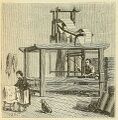Template:Selected anniversaries/March 3: Difference between revisions
No edit summary |
No edit summary |
||
| Line 1: | Line 1: | ||
<gallery | <gallery> | ||
File:Maimonides.jpg|link=Maimonides (nonfiction)|1165: Rabbi, philosopher, astronomer, and physician [[Maimonides (nonfiction)|Maimonides]] questions morality of [[scrying engines]]. | File:Maimonides.jpg|link=Maimonides (nonfiction)|1165: Rabbi, philosopher, astronomer, and physician [[Maimonides (nonfiction)|Maimonides]] questions morality of [[scrying engines]]. | ||
File:Georg Cantor 1894.png|link=Georg Cantor (nonfiction)|1845: Mathematician and philosopher [[Georg Cantor (nonfiction)|Georg Cantor]] born. He will invent [[Set theory (nonfiction)|set theory]], a fundamental area of mathematical inquiry. | File:Georg Cantor 1894.png|link=Georg Cantor (nonfiction)|1845: Mathematician and philosopher [[Georg Cantor (nonfiction)|Georg Cantor]] born. He will invent [[Set theory (nonfiction)|set theory]], a fundamental area of mathematical inquiry. | ||
| Line 6: | Line 6: | ||
File:Jacquard loom with two children and a dog (circa 1877).jpg|link=Jacquard loom (nonfiction)|1876: Children reprogram [[Jacquard loom (nonfiction)|Jacquard loom]] to compute new family of [[Gnomon algorithm functions]]. | File:Jacquard loom with two children and a dog (circa 1877).jpg|link=Jacquard loom (nonfiction)|1876: Children reprogram [[Jacquard loom (nonfiction)|Jacquard loom]] to compute new family of [[Gnomon algorithm functions]]. | ||
File:Emil Artin.jpg|link=Emil Artin (nonfiction)|1898: Mathematician [[Emil Artin (nonfiction)|Emil Artin]] born. He will work on algebraic number theory, contributing to class field theory and a new construction of L-functions. He also contributed to the pure theories of rings, groups and fields. | File:Emil Artin.jpg|link=Emil Artin (nonfiction)|1898: Mathematician [[Emil Artin (nonfiction)|Emil Artin]] born. He will work on algebraic number theory, contributing to class field theory and a new construction of L-functions. He also contributed to the pure theories of rings, groups and fields. | ||
File:Paul Halmos.jpg|link=Paul Halmos (nonfiction)|1916: Mathematician and academic [[Paul Halmos (nonfiction)|Paul Halmos]] born. He will make fundamental advances in the areas of mathematical logic, probability theory, statistics, operator theory, ergodic theory, and functional analysis (in particular, Hilbert spaces). | |||
</gallery> | </gallery> | ||
Revision as of 19:39, 9 July 2017
1165: Rabbi, philosopher, astronomer, and physician Maimonides questions morality of scrying engines.
1845: Mathematician and philosopher Georg Cantor born. He will invent set theory, a fundamental area of mathematical inquiry.
1837: Engineer and inventor Charles Grafton Page publishes new class of Gnomon algorithm functions which detect and prevent crimes against mathematical constants.
1847: Engineer, inventor, and academic Alexander Graham Bell born. He will patent the telephone in 1876.
1876: Children reprogram Jacquard loom to compute new family of Gnomon algorithm functions.
1898: Mathematician Emil Artin born. He will work on algebraic number theory, contributing to class field theory and a new construction of L-functions. He also contributed to the pure theories of rings, groups and fields.
1916: Mathematician and academic Paul Halmos born. He will make fundamental advances in the areas of mathematical logic, probability theory, statistics, operator theory, ergodic theory, and functional analysis (in particular, Hilbert spaces).






